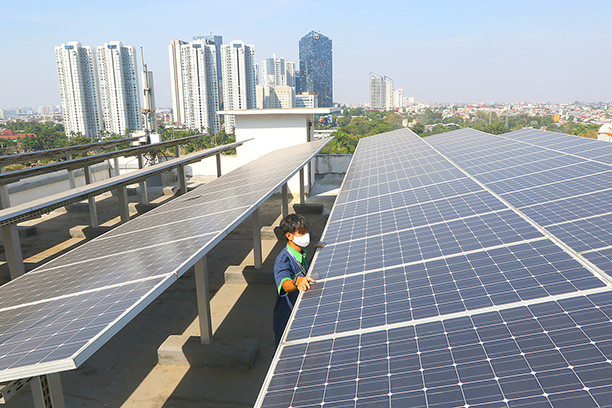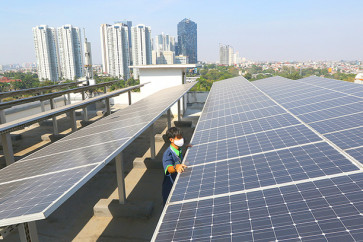Popular Reads
Top Results
Can't find what you're looking for?
View all search resultsPopular Reads
Top Results
Can't find what you're looking for?
View all search resultsDisconnect with developing world spells doom for current climate goals
Many people struggle to survive on a subsistence level as nearly half of the world lives on less than US$5.50 a day ($210 a month) and their attendant governments subsidize fossil fuels for political stability.
Change text size
Gift Premium Articles
to Anyone
T
he energy transition to renewables based on individual countries’ fossil fuel reduction pledges in Paris and in the recent United Nations Climate Change Conference (COP26) in Glasgow, the United Kingdom, are largely a pipe dream for the developing world, despite all the platitudes of “go along, to get along” feel-good aspirations. As with the COVID-19 pandemic, there is no “unified global response” to climate change issues.
Rich world fantasies with liberal populations idealize how the poor should behave.
The developing world runs on fossil fuels, from huge traffic jams in Bangkok and Jakarta, to coal-fired power plants in Sri Lanka and India, to gas and charcoal stoves for cooking and heating through Asia, to the vast oil exports of Nigeria, Malaysia and Iraq. Delivery e-start-ups such as Gojek, Grab and Ula are predicated on cheap fossil fuels and plastic packaging containers made of fossil fuels, in part subsidized by their governments, to keep economies with low-wage labor costs humming along.
The addiction to fossil fuels and the revenues derived from the use of those fuels will preclude any quick change to reducing CO2 emissions, if at all. If one looks out over the vast favelas of Brazil, wasti of India, kampungs of Indonesia or barrios in Venezuela, solar panels are a rare sight to see indeed, if non-existent. In most of the developing world, and somewhat middle-income economies, such as Turkey and Thailand, motorcycles and three-wheelers running on liquefied petroleum gas (LPG) are largely used.
The environmental, social and governance (ESG) models put forward by developed and rich countries in the Northern hemisphere are not well understood in developing or even middle-income economies, like Indonesia and South Africa. Additionally, much of the fossil fuel reform set for developed countries is linked to “social initiatives” under ESG guidelines for women and social inequality, racial identity, gay rights and so on, things that have really nothing to do with mitigating climate change and would be a hard sell in much of the developing world because of cultural differences.
China is the world’s largest producer of government-subsidized solar panels, also producing batteries and electric vehicles (EVs), and accounts for 50 percent of world growth in renewable capacity. Yet China continues to build fossil-fueled (coal and LNG) power plants throughout the developing world as part of its Belt and Road Initiative (BRI).
China, India, Indonesia, Japan and Vietnam account for 80 percent of all the world’s coal-fired power plants. While pledging carbon neutrality domestically by 2060, that is a long way out and the fossil-fueled power plants currently on the drawing board for many developing, in particular African, countries would still be considered very much as projects “in process”.



















